
A good web browser is one that is stable, safe, and easy to use. An even better web browser is one that has AI implemented in it, giving it more useful features.
But how will AI help your browsing experience?
While there are many benefits, the most important of them all is — the way it will save your time. AI-powered features can make things easy, and speed up your workflow.
I know, I know, some of you hate the concept of AI in your favorite apps 😔 And, I don't blame you. But, we can't dismiss some benefits of having AI-powered features on our browser.
So, for users who want that, this list is for you 😊
Here, I highlight the five best web browsers that feature some sort of AI in them.
1. Brave Browser
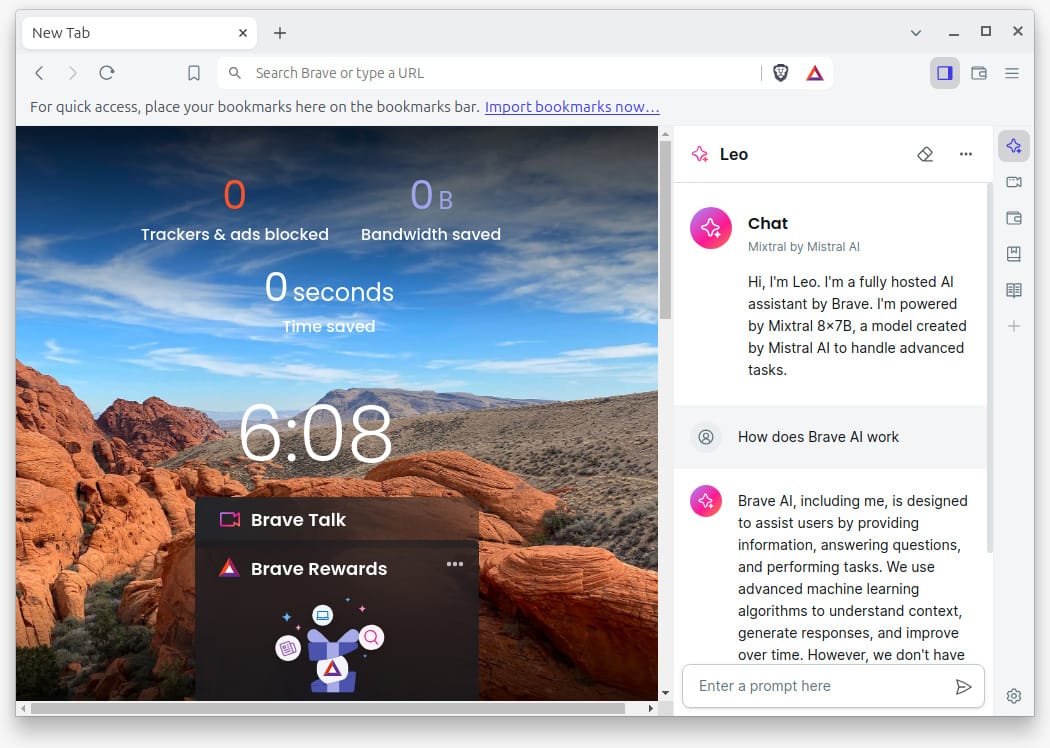
Brave is a popular open-source open web browser that is built on the chromium project, making it compatible with most chrome extensions.
When it comes to AI, the browser comes with an assistant named Leo, which offers many features. Leo can summarize webpages, and can get you insights from PDFs, DOCs and more. However, my primary reason for putting Brave on the list, is the fact that Leo is a brave-hosted model (they don't rely on any third-party) and it does not retain any information you provide it with. Not to forget, you do not need to sign in.
The AI is free for everyone; However, paying will get you additional models, faster responses and early access to new features.
2. Opera One
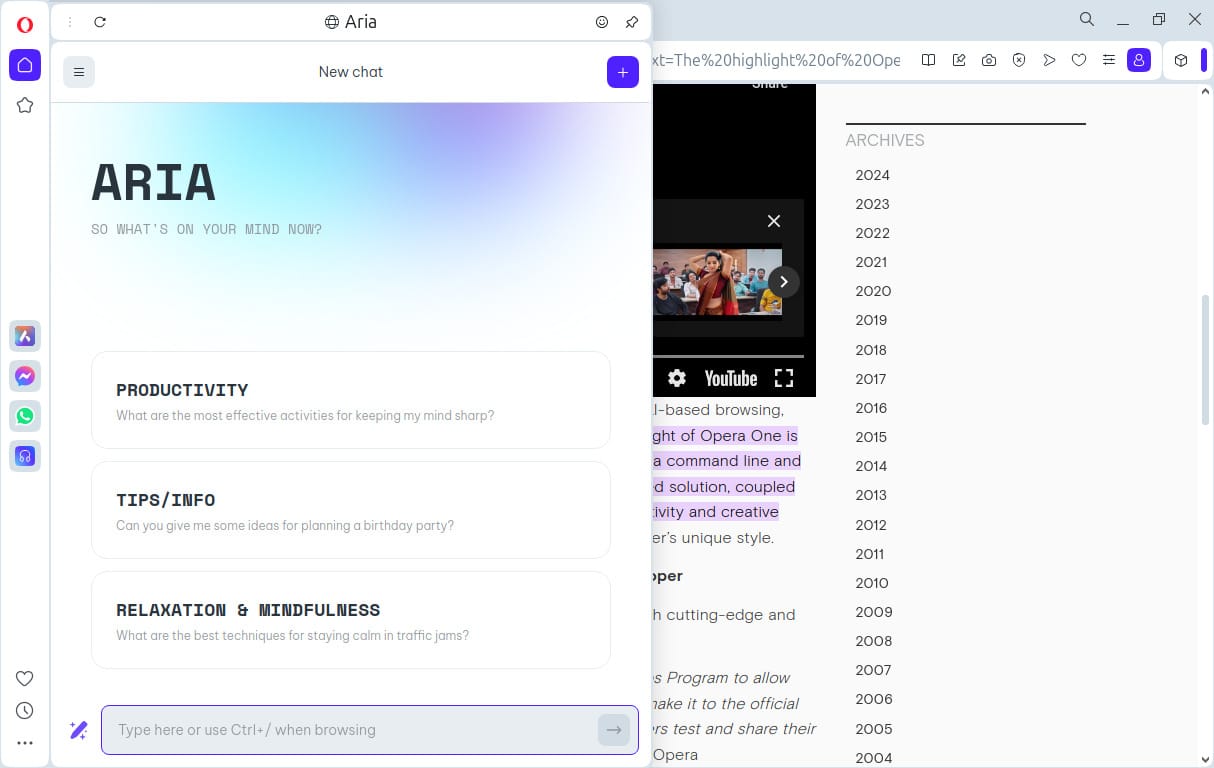
Opera has been around forever. Their latest browser, Opera One, is a combination of fluid UI with smart AI, along with free VPN and ad-blockers.
Its integrated AI i.e, Aria is based on several popular LLMs like Google's PaLM or Generative Pre-trained Transformer built by OpenAI. Aria can help you with writing an email, make a social media post and summarize all sorts of content.
Additionally, Aria can also help you generate creative ideas, find synonyms and just make your content more refined. The browser also makes it straightforward to access this assistant at any point of time using CTRL + /.
Aria is completely free to use and can be accessed by all users alike.
3. Microsoft Edge
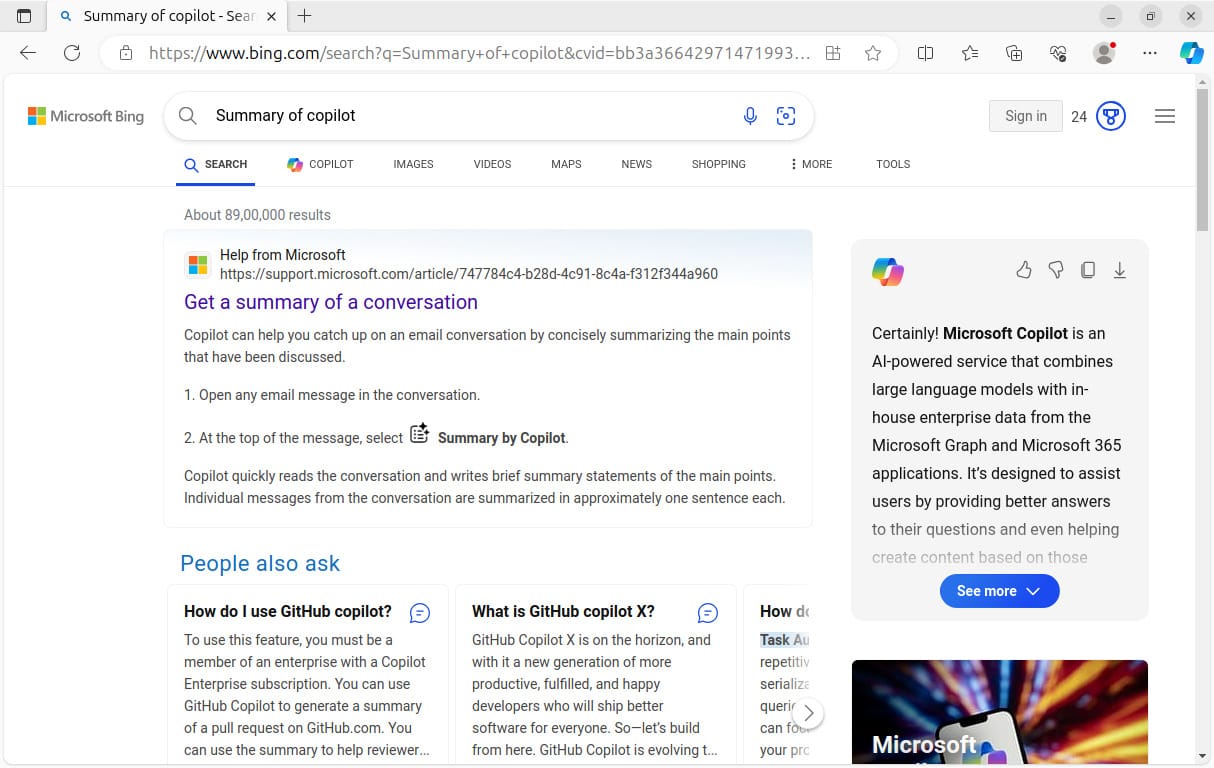
While it might seem a little ironic to use a Microsoft browser on Linux, I can’t help but notice that Edge offers too many features to ignore.
Microsoft's integrated AI, Copilot, does not just summarize your content. It can help you compare products, organize your tabs, improve images and get specific answers based on screenshots. Moreover, the browser allows you to transform your words into a browser theme using AI, and It can also read aloud any form of content.
While Copilot is free for the most part, paying a fee of $20/user/month can help you access its features in other Microsoft apps (Excel, Word, PowerPoint). It will also generate faster and more accurate responses.
Suggested Read 📖

4. Wavebox (Non-FOSS)
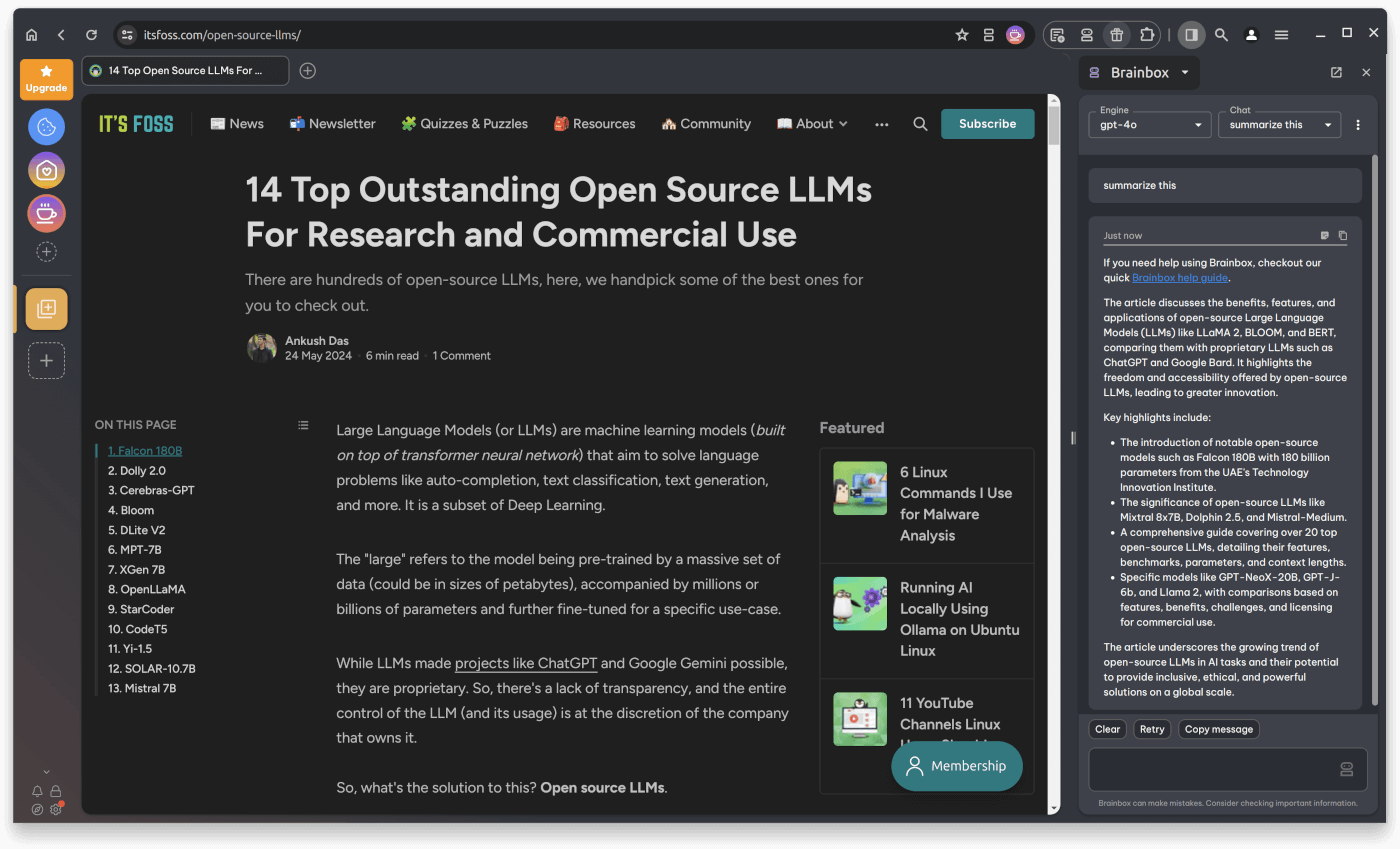
Wavebox is a Chromium-based browser that focuses on improving productivity.
Wavebox boasts its OpenAI assistant, 'Brainbox' and its ResembleAI feature. Brainbox can help you come up with the answers you are looking for. Moreover, you can customize Brainbox's skills using a simple layout. On the other hand, ResembleAI is a real-time speech-to-speech software that helps you clone your voice and provides you with assistance.
Unfortunately, Brainbox and ResembleAI are only available in Wavebox's paid, pro versions. However, you can access it for a 7-day trial period for free. The user experience was pretty sleek (but a bit heavy on resources).
It's paid + it is not open-source, I am sure, a lot of you hate it already 😅 But, let's appreciate the fact that they offer it for Linux, despite their niche target on the use-case of the browser. Hence, I decided to list it as an interesting addition to try.
5. Pinokio Browser
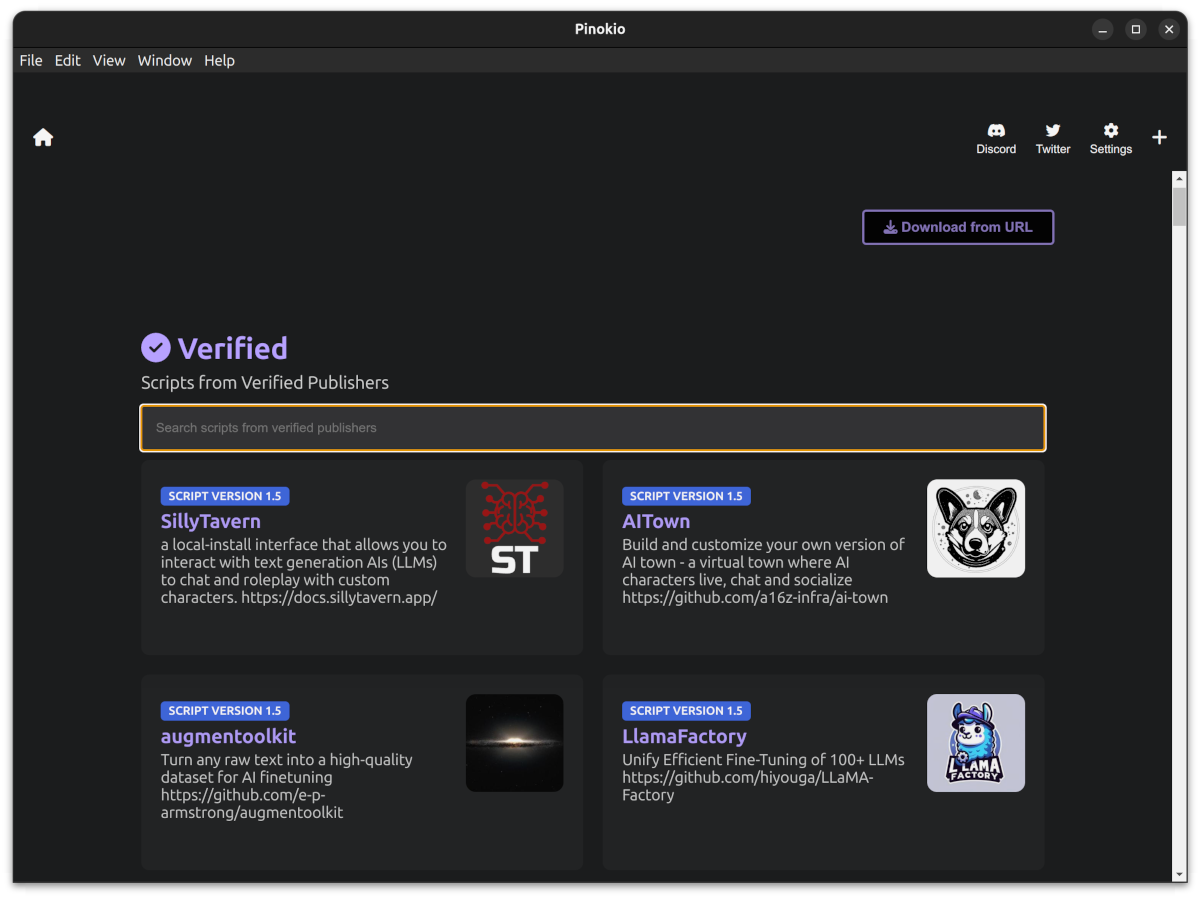
'Pinokio is a browser that lets you install, run, and programmatically control ANY application, automatically.', is how they describe themselves, and they could not be any more accurate.
Pinokio browser is not your traditional browser with a built-in AI. Instead, it offers you with many scripts, that you can install within the browser and use to interact with AI. 'SillyTavern' for example, is a verified script that helps you interact with text generation AIs (LLMs) to chat and roleplay.
Pinokio is completely free for all.
Suggested Read 📖

Wrapping Up
AI integration in almost everything we use is inevitable. Web browsers will also evolve with these AI features.
Maybe, we will have Mozilla add some AI features to stay relevant, who knows?
If you are experimental and have a system with Nvidia or AMD GPU, you can run AI locally with Ollama on Linux and then use an extension like Page Assist.

💬 Do you use AI features on your web browser? If so, what do you use it for? Let us know your thoughts in the comments below!
Author Info

Swayam Sai Das is a student exploring the realms of Linux as an Intern Writer at It's FOSS. He is dedicated, when trying to push ranks in FPS games and enjoys reading literature classics in an attempt of putting on an academic facade.



